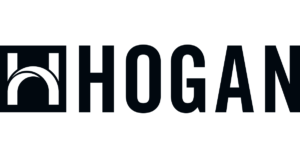
During the past few months, we all have experienced heartbreaking events and challenges related to the COVID-19 pandemic. During the past two weeks, it has become impossible to ignore another crisis, which the American Psychological Association labeled a “racism pandemic.” Sadly, the racism pandemic has been and continues to be a much more enduring, primary, intractable, and destructive one, which most recently was highlighted by the murder of George Floyd by a police officer.
This double pandemic intensifies our typical yearning for meaning. Considering the recent death and destruction, we might be tempted to conclude that there is nothing we can do to make things better. Like many of you, I have spent a lot of time thinking about Hogan’s history of commitment to social justice, and it is critical that this commitment is not only part of our history, but also our future. It is poignant that Hogan’s headquarters is located in an area once known as Black Wall Street that has a history of racial violence — because even before the official founding of Hogan, antidiscrimination and equal opportunity were core values and drivers of action for our founders.
For example, during the 1960s protests in Berkeley, Robert Hogan proposed and carried out research to improve police officer selection, despite being met with indifference (at best) from other researchers. His focus on research to improve social justice became an enduring one. Throughout her career, Joyce Hogan worked with the Department of Justice on many high-profile discrimination cases to create more equitable opportunities for women in traditionally male-dominated fields, such as heavy industry and police and fire departments.
Robert and Joyce started Hogan Assessments with a vision to create equal opportunity in the workplace. The confluence of three factors provided an opportune moment:
- The Civil Rights Act of 1964 made discrimination in the hiring process illegal.
- The Equal Employment Opportunity Commission (EEOC) was established to enforce the antidiscrimination part of the Civil Rights Act.
- The mainstream field of I/O psychology primarily focused on using IQ tests for selection, despite clear evidence that such tests discriminated against minority applicants.
Through the Hogans’ early research and the research that continues today, Hogan has shown again and again that personality measures predict performance across all jobs — without creating unfair discrimination based on demographic or non-job-related variables. Using personality measures in selection helps ensure that the best person for the job gets the job. That is key to social justice.
Aside from the ongoing and daily impact of the fairness of our approach, we continue to do research and seek opportunities to put our assessments to work in ways that benefit all. For example, we are actively engaged in research and proposals to improve hiring practices for law enforcement. This week, we put a small team together to expand use of our research and assessments in public safety settings, and we recently worked with a partner to implement a diversity and inclusion assessment for leaders.
Today, our impact on social justice is global. Even in countries where discrimination based on race, gender, ethnicity, sexual orientation, or social status is condoned or overlooked, companies that use our assessments are providing fair evaluations of job applicants, even if unwittingly so.
If, like me, you have been struggling over the past couple of weeks about what you can do to reject discrimination and support equality, you can be confident that our collective work at Hogan promotes social justice every day and in every region of the world. Social justice is not just our history. It is alive, critical, and a calling in which we all can find meaning.
Of course, we can and should do more collectively and individually to address this pandemic of racism and discrimination. But let’s at least take a brief moment to reflect on our founding principles. Let’s reaffirm Hogan’s commitment to social justice, antiracism, and equal opportunity for all. And let’s remember how our work every day is an opportunity to continue the principled action that Robert and Joyce started. Clearly, we have a lot of work left to do.